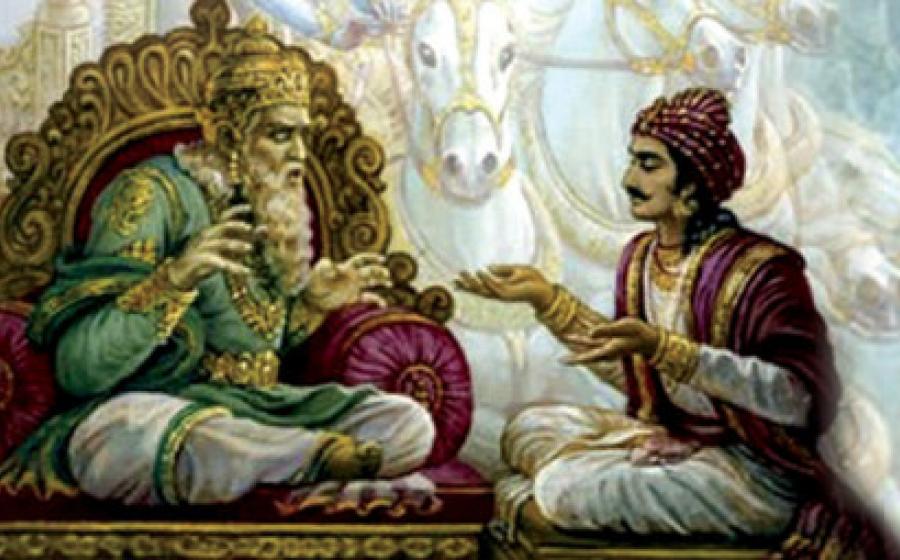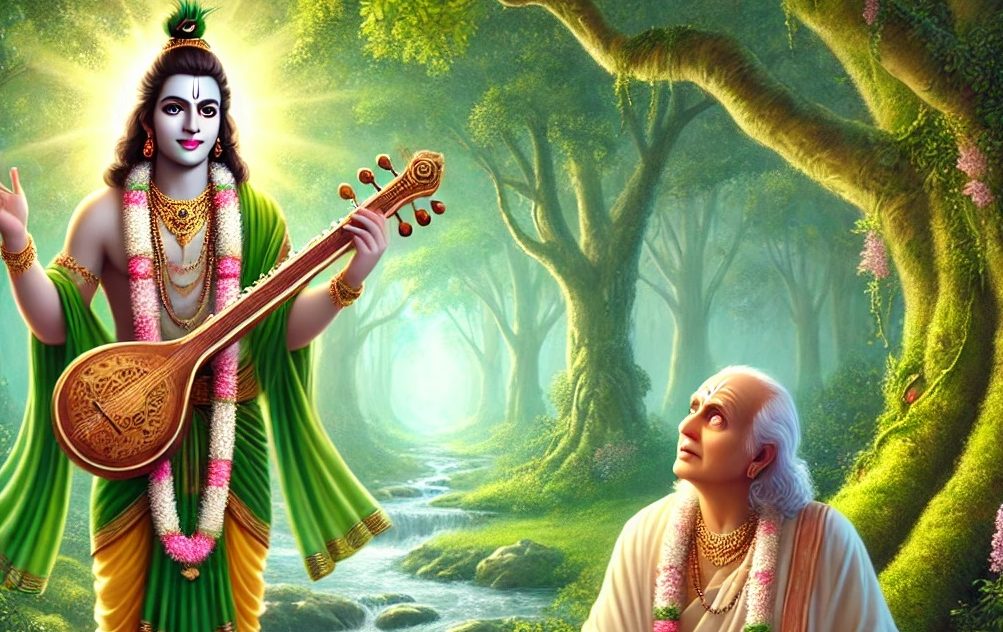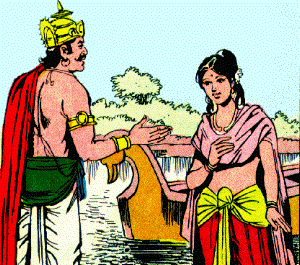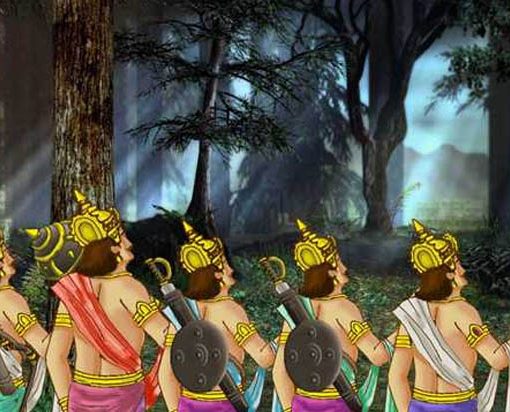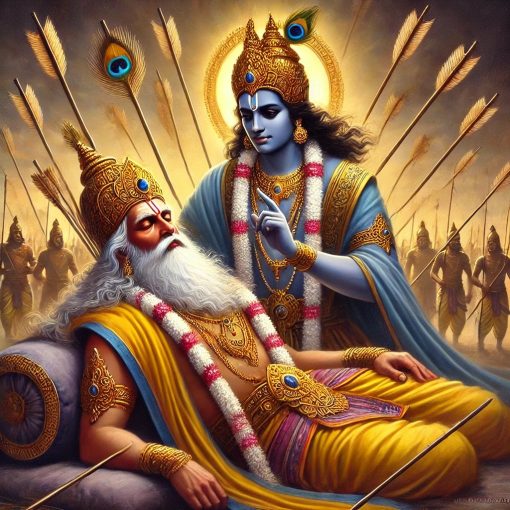Preface: Gandhari’s womb flesh was artificially incubated according to Vyasadev’s advice and put in 100 pots. Refer history of birth.
Exactly after the two years had elapsed (after Gandhari’s conception) the pots were opened one by one. From the first came a child who was named Duryodhana.
The frightened King Dhṛtarāṣṭra summoned the Brahmins, Bhīṣma, Vidura and other ministers and counselors. He asked them the meaning of the omens. “The eldest of the princes is undoubtedly Yudhiṣṭhira and he should inherit the kingdom. I do not dispute that. But will my own son become the king after him? O wise ones, please tell me what is right and lawful.”
As Dhṛtarāṣṭra spoke the terrible sounds began again from all sides. Hearing this, Vidura replied to the king, “When these omens are seen at the birth of a child, it is evident that he will be the exterminator of his race. Our prosperity and future depend upon his being abandoned. Do not hesitate, O King. This child must be cast away at once.”
Vidura told Dhṛtarāṣṭra that he would still have ninety-nine other sons. There would be no sin in abandoning this child, as the scriptures clearly state that an individual can be abandoned for the sake of a family. Indeed, a family can be abandoned for the sake of a village, a village for the sake of a city and the world itself can be abandoned for the sake of the soul.
Dhṛtarāṣṭra was unable to accept Vidura’s counsel. He could not allow his son to be cast away. He shook his head slowly and said nothing in reply. As the nurse stood by holding the baby, the king waved her toward Gāndhārī and the child was handed to her. Bhīṣma and Vidura looked at one another but said nothing. Dhṛtarāṣṭra was the monarch; his word was final.
Over the course of the next month, all the pots were opened and one hundred boys and one girl were brought out. All the boys bore the signs of being great warriors and rulers. The king and queen rejoiced in their good fortune. Dismissing the evil omens, they dwelt contentedly in Hastināpura, attended by Bhīṣma and Vidura.
Source : Mahabharat – Krishna Dharma Das – https://www.vedabase.com/en/mbk/1/3

